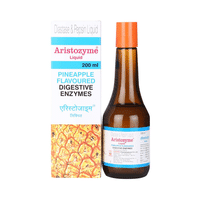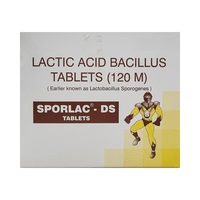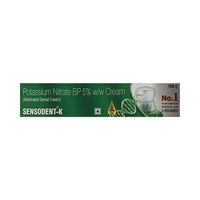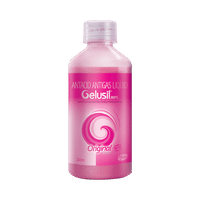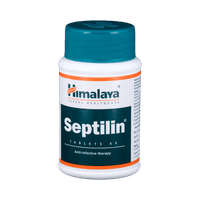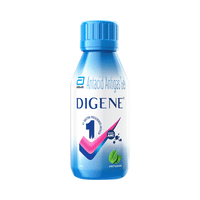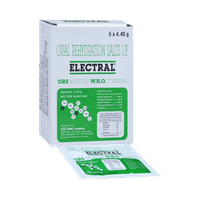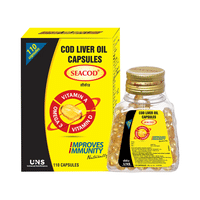Tiflow D Eye Drop
Rs.7.80for 1 packet(s) (5 ml Eye Drop each)
food interaction for Tiflow D
alcohol interaction for Tiflow D
pregnancy interaction for Tiflow D
lactation interaction for Tiflow D
food
alcohol
pregnancy
lactation
No interaction found/established
No interaction found/established
Information regarding the use of Tiflow D Eye Drop during pregnancy is not available. Please consult your doctor.
CONSULT YOUR DOCTOR
Information regarding the use of Tiflow D Eye Drop during breastfeeding is not available. Please consult your doctor.
CONSULT YOUR DOCTOR
SALT INFORMATION FOR Tiflow D
Dexamethasone(NA)
Uses
Dexamethasone is used for Inflammatory conditions and Autoimmune conditions.
How it works
Dexamethasone is a steroid which works by blocking the production of certain chemical messengers in the body that cause inflammation (redness and swelling) and allergies.
Common side effects
Increased appetite, Edema (swelling), Increased intraocular pressure, Decreased potassium level in blood, Tendon rupture, Weight gain, High blood pressure, Increased glucose level in blood, Menstrual disorder, Glaucoma, Slow heart rate, Tachycardia, Arrhythmia (irregular heartbeats), Enlarged heart, Circulatory shock, Fat embolism, Fainting, Thromboembolism, Thrombophlebitis, Vasculitis, Glucose intolerance, Cushing syndrome, Fat accumulation, Conjunctival hemorrhage, Vitreous detachment, Conjunctival hyperemia, Posterior subcapsular cataract, Acne, Allergic dermatitis, Hair loss, Stretch marks, Facial redness, Fragile skin, Skin hyperpigmentation, Hypertrichosis (excessive hair growth), Hypopigmentation, Fluid retention, Growth retardation in children, Excessive hair growth on face, Hypokalemic alkalosis, Negative nitrogen balance, Hiccup, Nausea, Vomiting, Abdominal pain, Pancreatic inflammation, Anal itching, Defective spermatogenesis, Kaposi sarcoma, Hepatomegaly (enlarged liver), Anaphylactic reaction, Sterile abscess, Postinjection flare, Emotional lability, Headache, Idiopathic intracranial hypertension, Increased intracranial pressure, Myasthenia (weakness and rapid fatigue of muscle), Neuropathy, Personality changes, Seizure, Vertigo, Amyotrophy, Bulging eyes, Pulmonary edema, Impaired wound healing, Aseptic necrosis, Muscle weakness, Osteoporosis, Pathologic fracture of long bones, Steroid myopathy, Vertebral compression fractures, Increased liver enzymes
Gatifloxacin(NA)
Uses
Gatifloxacin is used in the treatment of bacterial infections. It is also used in infections of urinary tract, tonsils, sinus, nose, throat, female genital organ, skin & soft tissues and lungs (pneumonia).
How it works
Gatifloxacin is an antibiotic. It works by stopping the action of a bacterial enzyme called DNA-gyrase. This prevents the bacterial cells from dividing and repairing, thereby killing them.
Common side effects
Headache, Vomiting, Nausea, Stomach pain, Diarrhea, Dizziness
SUBSTITUTES FOR Tiflow D
No substitutes foundExpert advice FOR Tiflow D
- Do not use it more often or for longer than advised by your doctor.
- Dexamethasone can make it harder for you to fight off infections. Notify your doctor if you have any signs of infection such as a fever or sore throat.
Frequently asked questions FOR Tiflow D
Dexamethasone
Q. Is Dexamethasone a steroid?
Yes, Dexamethasone is a steroid medicine also known as glucocorticoids which occur naturally in the body and help to maintain health and wellbeing. Dexamethasone helps in treating various illnesses involving inflammation (redness, tenderness, heat and swelling) in the body.
Q. What is Dexamethasone used for?
Dexamethasone has anti-inflammatory and immunosuppressant properties. It is used to treat conditions like allergic conditions, anaphylaxis, asthma, rheumatoid arthritis and inflammatory skin diseases. It also aids in treating autoimmune diseases (these diseases happen when your body’s immune system attacks the body itself and causes damage) and certain eye disorders. Additionally, it is used to treat cancer and nephrotic syndrome when used with other medicines.
Q. How is Dexamethasone administered?
Dexamethasone should be administered by a doctor or under the supervision of a healthcare professional and should not be self-administered. Usually, it is given into a muscle (intramuscular), joint (intra-articular), directly into a vein (direct intravenous), infusion or into the area being treated (soft tissue infiltration). The dose will be decided by your doctor based on the condition you are being treated for as well as your body weight. Follow your doctor’s instructions carefully to get the maximum benefit from Dexamethasone.
Gatifloxacin
Q. Can I stop taking Gatifloxacin when I feel better?
No, do not stop taking Gatifloxacin and complete the full course of treatment even if you feel better. Your symptoms may improve before the infection is completely cured.













